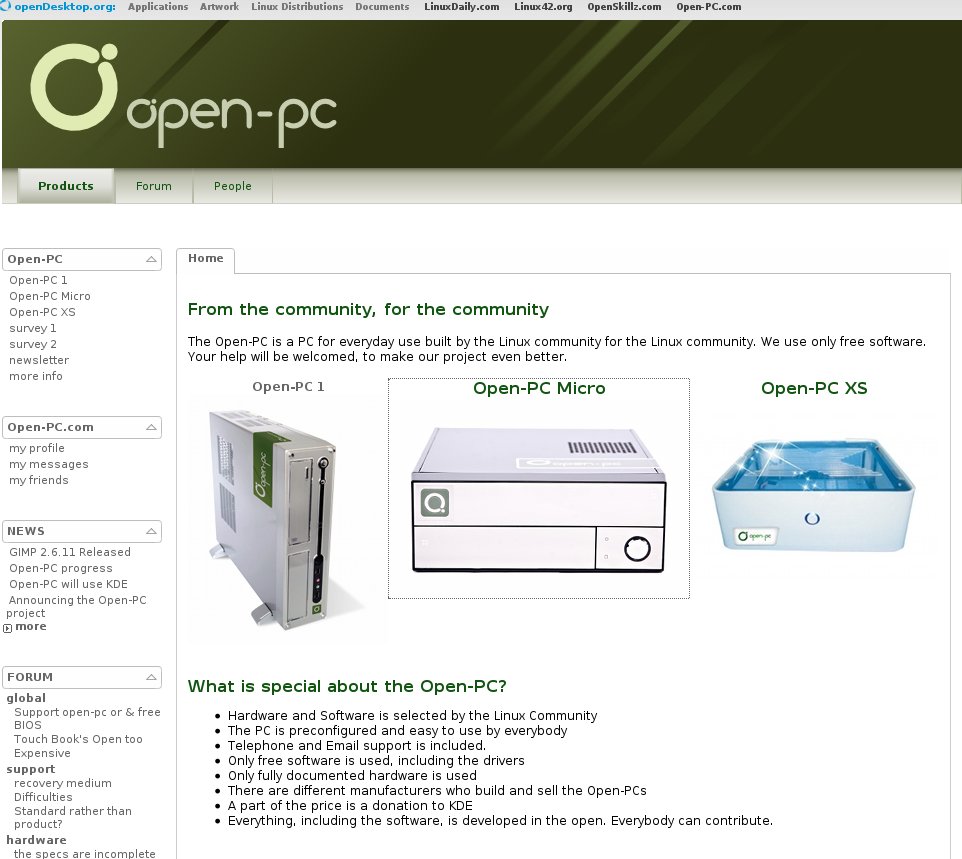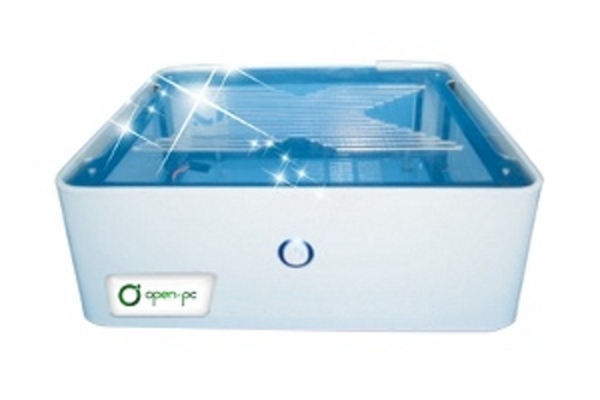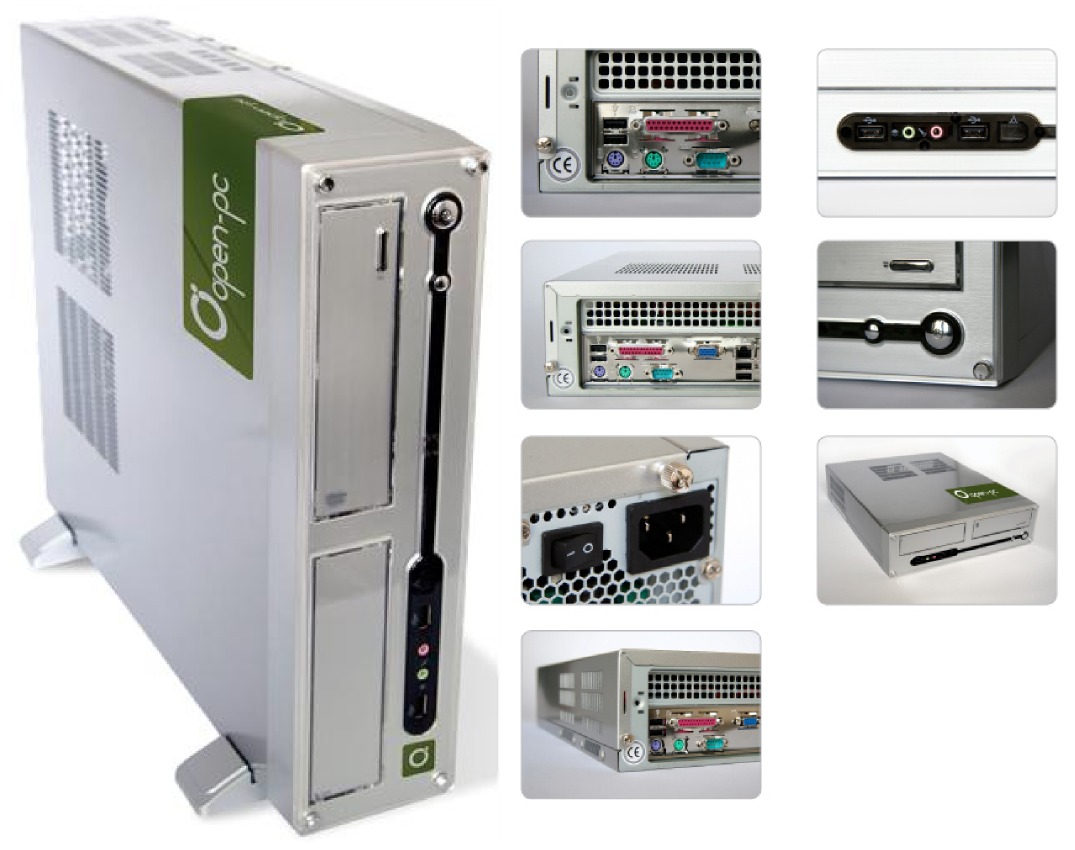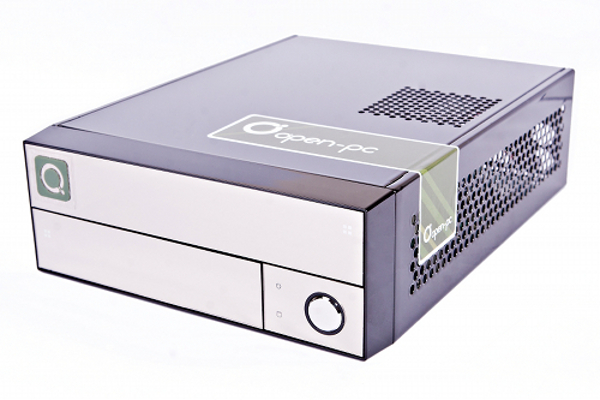The Open Desktop communities Open-PC project is now offering three different models of open computers with turn-key GNU/Linux and KDE installations based on OpenSUSE (or Ubuntu). These systems could provide real competition with pre-installed Windows or Mac computers, overcoming some of the most frequently-cited problems with GNU/Linux on the desktop. The systems are now available from vendors in Europe and the USA.
It's not that uncommon to come across brave plans for GNU/Linux-based computer systems, ranging from games to netbooks to desktops, but they often turn out to be vaporware that never makes it to market. One thing that's exciting about the Open-PC project is that it actually has hardware in stock now -- so if you think you're actually in the market for a low-cost "nettop" computer with GNU/Linux/KDE branding and a totally-configured operating system pre-configured for newbies (maybe for a gift?), then do read on, this is the real deal.

The OpenPC project is an offshoot of the long-standing OpenDesktop organization which hosts community sites like KDE-look and Gnome-look. Leveraging this community access, the group has been in a position to survey the GNU/Linux user community for specifications and other resources to specify what sort of computer would be useful. It began with a proposal presented by Frank Karlitschek in 2009, and has proceeded quite rapidly to products available at the end of 2010.
In the end, they settled on the Nettop (I had to look this up -- it means a small, low-power desktop machine for accessing the internet and other lightweight tasks. In other words, a starter computer for new users). This is just the sort of area where GNU/Linux really shines, and the OpenPC designs add stylish packaging to make the machines attractive to users. Personally, I think they're all really cute, although my favorite design s definitely the Open PC XS (which is fortunate, I suppose, since it's the one made in the USA, and thus the easiest for me to get).

Unfortunately, as with essentially all short-run-manufactured electronic products, the Open-PCs are a bit pricey for their performance range. On the other hand, at roughly $250 to $522, they are inexpensive enough to make the savings on software (relative to proprietary Nettop systems) or on installation headaches (relative to scratch-building for GNU/Linux) a worthwhile consideration. Or to put it another way: what price will you pay for freedom?
The three designs (the "Open PC 1", "Open PC Micro", and "Open PC XS") are available for immediate purchase as of December 2010.

Although it's hard to find the information on the Open-PC site, a 2009 presentation from Karlitschek says the systems will be based on the OpenSUSE distribution, and the installed desktop environment will be KDE. This probably reflects the German origins of the project, since OpenSUSE is very popular there. The Think Penguin site says the Open PC XS comes with Ubuntu by default, with OpenSUSE as an option (I think Ubuntu is more popular in the USA, so this makes sense).
The form factor, hardware specifications, and desktop environment were all chosen based on the results of surveys of the Open Desktop community, and break down as follows for the three available machines:
| Spec | Open PC 1 | Open PC Micro | Open PC XS |
|---|---|---|---|
| Manufactured in | Europe | Europe | USA |
| Cost | €387.03 | €349.90 | $249.00-$572.97 |
| Sold by | ARLT | GreeniX | Think Penguin |
| CPU | Atom D510 | Atom D510 | Atom N330 |
| CPU speed | 1.6GHz | 1.6GHz | 1.6GHz |
| CPU cores | 2 | 2 | 2 |
| Motherboard | Asus AT5NM10-I | -- | Intel 945 Expr |
| MB Chipset | Intel NM10 | Intel ICH7 | |
| RAM | 4 GB | 2 GB | 1 GB |
| Hard Drive | 500 GB | 320 GB | 40 GB |
| Video | Intel GMA 3150 | Intel GMA 3150 | Intel GMA 3150 |
| Audio | "High Def" | -- | Realtek ALC662 |
| Ethernet | "10/100/1000" | -- | Realtek RTL8103EL |
| Power Supply | 250 W | -- | -- |
| Form Factor | Mini ITX | Mini ITX | -- |
| Size(mm) | 345x100x425 | 72x185x240 | -- |
| Optical Drive | CD/DVD Burner | CD/DVD Burner | Optional DVD-RW |
| USB Flash | -- | No | Optional 16 GB |
| Wi-Fi | -- | No | Optional 802.11N/G |
| Operating System | OpenSUSE | OpenSuse 11.3 | Ubuntu or OpenSUSE |
The biggest problem with the project appears to be a lack of experience with marketing and press-releases. For example, it was very difficult to get the photos for this column, and no high-resolution images seem to be posted anywhere on the Open-PC site. Furthermore, the spec-sheets for the PCs are somewhat sparse (you'll notice some entries are missing in the table above). Savvy commercial projects make this kind of information available so as to get free advertising through press coverage.
A small part of each sale (typically €10) is paid to the KDE project, so the sales directly support free software development for desktop users.

Is this really a good idea?
I'm going to go out on a limb here and say "Yes!" The worst thing about GNU/Linux on the desktop has been the poor availability of turn-key systems compared with Windows and Macintosh, and the second worst is the inconsistency with hardware support. The Open-PC solves both problems.
Though the cost is admittedly somewhat high for the given performance, the Open-PC offers a way around all the installation and configuration hassles of scratch-building
For myself, I'm more likely to save money by scratch-building from components. This is one way to avoid the "Microsoft Tax" paid when you buy through system integrators who generally must pay for Windows licenses in bulk -- a cost which comes out of your payment, regardless of whether you actually use the Windows license or not. I'm also generally able to get a very nice, high-performance system for a very low price this way. But there is a cost.
The cost is that I must then spend days -- sometimes weeks -- hassling through the inevitable hardware and software incompatibility problems. For me, as a relative expert on GNU/Linux and computer hardware, this not so bad, and I don't mind the high buy-in cost, because I'm know for a fact that I'm going to get a lot of use out of the resulting system. Plus I need to save the money. But for a typical, non-technically-inclined end-user, it can be a nightmare.
Though the cost is admittedly somewhat high for the given performance, the Open-PC offers a way around all the installation and configuration hassles of scratch-building. This would be a terrific starter system for an end-user, and one which directly supports free software development and free software advocacy goals.
Licensing Notice
This work may be distributed under the terms of the Creative Commons Attribution-ShareAlike License, version 3.0, with attribution to "Terry Hancock, first published in Free Software Magazine". Illustrations and modifications to illustrations are under the same license and attribution, except as noted in their captions (all images in this article are CC By-SA 3.0 compatible).